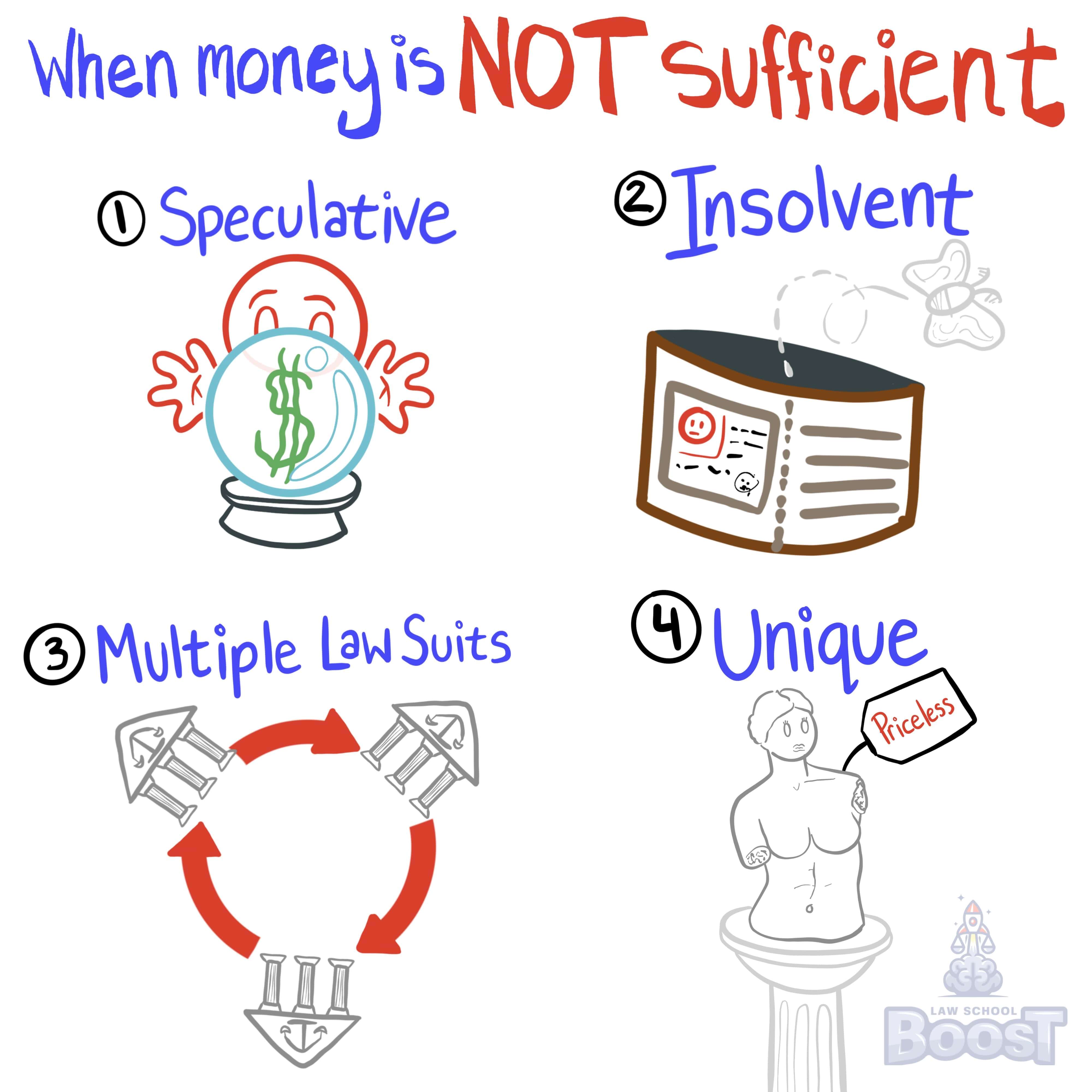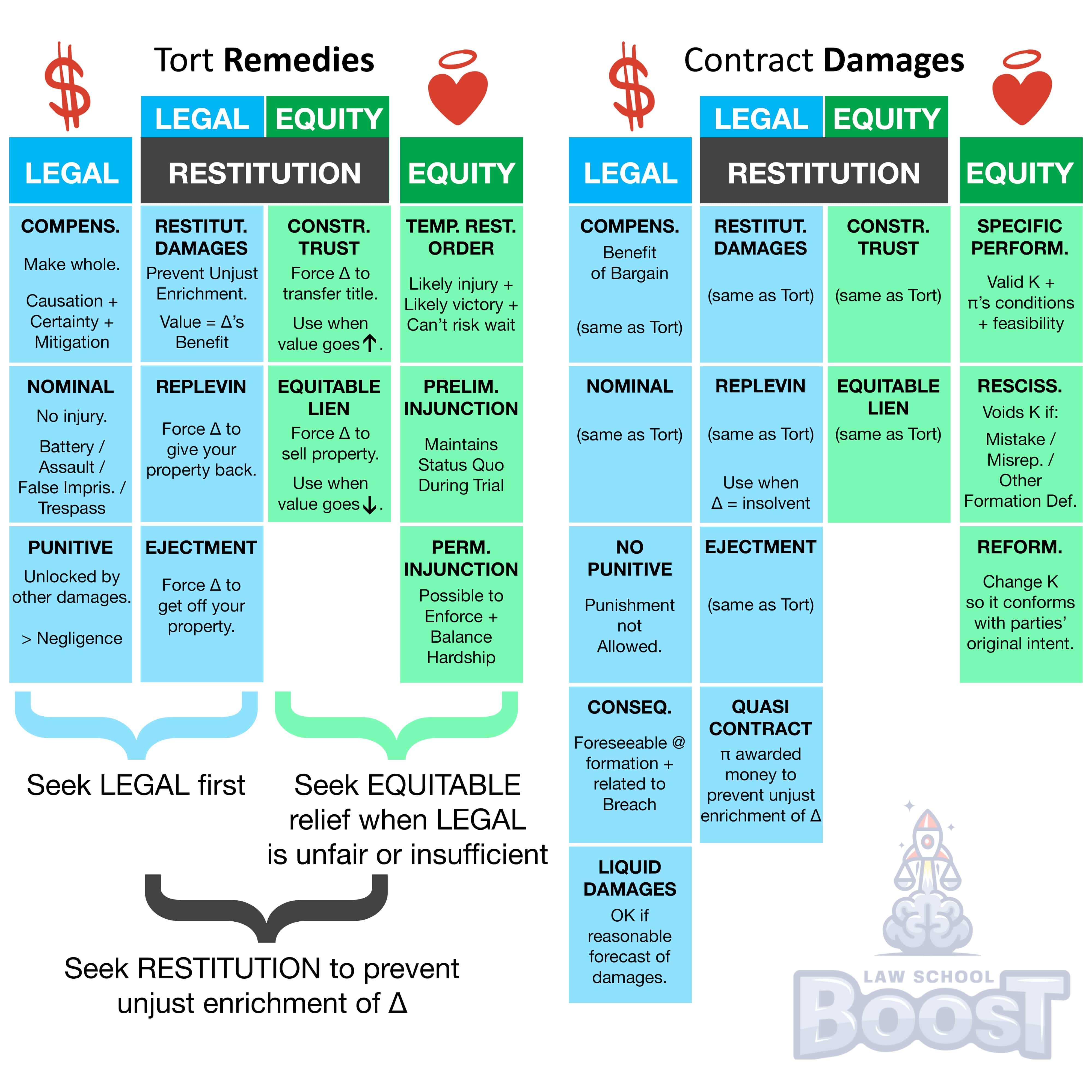🏥
Remedies • Contract - Equitable Remedies
REM#056
Legal Definition
The basic alternative to specific performance is money damages, which may be inadequate because (1) damages are speculative, (2) the defendant is insolvent, (3) multiple suits are necessary, or (4) the thing bargained for is unique.
Plain English Explanation
When someone breaks a contract or agreement, the court usually orders them to pay money to the other party as compensation. This is called "money damages." However, sometimes just paying money isn't enough to fix the problem. This might be because:
(1) It's hard to determine how much money would be fair (damages are "speculative").
(2) The person who broke the agreement doesn't have enough money to pay (they are "insolvent").
(3) The victim would have to go to court multiple times to get the money they deserve ("multiple suits").
(4) What was promised in the agreement is so special and unique that money can't replace it (the thing is "unique").
In these cases, the court might order the person who broke the agreement to actually do what they promised. This is called "specific performance."
(1) It's hard to determine how much money would be fair (damages are "speculative").
(2) The person who broke the agreement doesn't have enough money to pay (they are "insolvent").
(3) The victim would have to go to court multiple times to get the money they deserve ("multiple suits").
(4) What was promised in the agreement is so special and unique that money can't replace it (the thing is "unique").
In these cases, the court might order the person who broke the agreement to actually do what they promised. This is called "specific performance."
Visual Aids


Related Concepts
How does election of remedies affect a claim for rescission?
If a contract has a liquidated damages clause, is specific performance still an option?
What are common defenses to specific performance?
What are defenses to rescission?
What are equitable remedies in contract?
What are the defenses to formation?
What happens if a plaintiff is entitled to rescission but has already performed?
What is reformation?
What is rescission?
What is specific performance and when it is applicable?
What is the part performance exception to the Statute of Frauds?
What type of mutual mistake is sufficient for rescission?
When applying specific performance to a land purchase contract, what happens if a buyer breaches a "time is of the essence" clause with a forfeiture clause?
When applying specific performance to a land purchase contract, what happens if the quantity of land is in dispute?
When assessing reformation, what constitutes sufficient grounds?
When assessing specific performance, how do courts weigh feasibility of enforcement?
When assessing specific performance to acquire a unique piece of property, when is uniqueness tested?
When assessing specific performance, what must the status be of a plaintiff's contractual conditions?
When assessing whether money damages are inadequate for specific performance, why does it matter whether a piece of property is unique and what kind of property is always unique?
When is personal property considered unique enough to trigger specific performance?
Will courts grant rescission for a unilateral mistake?


